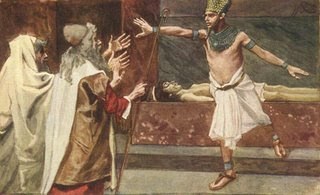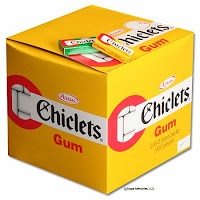TODAY’S SPECIAL: Philippians 3:10-14
TO CHEW ON: But one thing I do: Forgetting what is behind and straining toward what is ahead, I press on toward the goal to win the prize for which God has called me heavenward in Christ Jesus. Philippians 3:13b, 14
Each member of your baseball team has to sell 20 boxes of chocolates as a fund-raiser. But after tramping the neighborhood for an hour and hearing “No thanks” at every door, do you feel like giving up?
When you keep going in spite of everything it’s called “perseverance.” We can learn a lot about perseverance from some Bible characters. Which person:

1. Begged Pharaoh many times to let his people leave Egypt? (a. Jacob, b. Joseph, c. Moses).
2. Prayed for years before God gave her a son? (a. Mary, b. Hannah, c. Eve)
3. Prayed, and then sent his servant to check six times before he saw a rain cloud? (a. Elijah, b. Nathan, c. Samuel).
Living for God also needs perseverance. Here are some reasons you may feel like giving up. Which is true about you?
- I’ve blown it in the past.
- None of my friends are Christians and I feel alone.
- Living for God is hard and I’m tired of trying.
- I’ve done enough and now I can stop trying.
PRAYER: Dear Jesus, please help me to forget about past failures and successes, and do my best for You each day. Amen.
MORE: Never Give Up!

- Bette Graham made the first “Mistake Out” in her blender. Soon all the secretaries in her office wanted some to fix their mistakes. But she made little money at it until one day she made a mistake that she couldn’t paint over. After she got fired she had lots of time to spend on her Liquid Paper® business.
- Thomas Adams did hundreds of experiments on chicle from the Mexican sapodilla tree. But every try at making toys, rainboots and bicycle tires failed. Then one day he put some in his mouth and found it was great to chew. He added some flavor and voila, Chiclets®!
- George de Mestral got an idea for a fastener when he examined a burr that had stuck to his pants. But after he made it in his lab, people laughed at his invention. He stuck with it, though and was soon selling over 60 million yards of Velcro® a year.
- Louis Braille became blind at the age of three after an accident with an awl (a tool with a pointed end). Even so, he learned to read, though books for the blind were heavy and the words hard to figure out. While he was still a student, he discovered the alphabet code used by the French army. On one of his school vacations he used that code to invent an alphabet with six dots using an awl to punch out words and sentences in the first Braille writing.